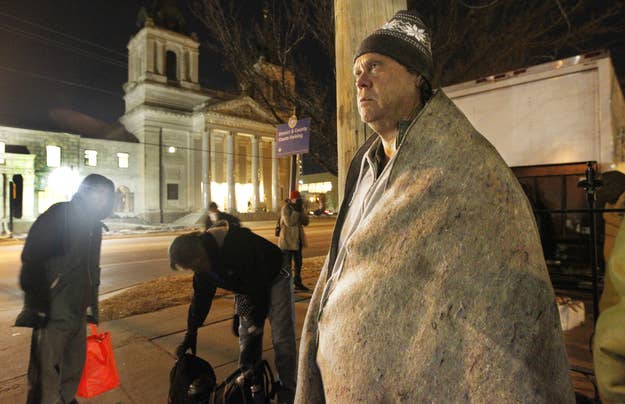
WASHINGTON — If allowed to take effect March 1, the rash of federal spending cuts known as "sequestration" will have a devastating effect on homeless assistance programs and put tens of thousands of the most vulnerable onto the streets.
As of December, the federal government counted more than 600,000 people as officially long-term homeless. If sequestration takes effect, that number could rise by roughly 100,000 people, according to federal government estimates.
But with this number looming large, the federal Department of Housing and Urban Development (HUD) has not yet advised states what programs might be cut or offered any other guidance on planning for the sequester.
"It's hard to know what sequester will do," said Sally Harrison, director of Homeless Solutions at Michigan State Housing Development Authority. "It will be up to HUD to determine what programs will be cut. It is our hope that the department would not take funding away from the poorest amongst us."
Even with explicit guidance from the federal government, the cuts would be a lot for states to plan for.
In a testimony before the Senate Appropriations Committee on Feb. 14, HUD Secretary Shaun Donovan acknowledged the myriad homeless assistance programs that could face serious cuts: rental assistance, emergency shelters, the Housing Opportunities for Persons with AIDS program, and others.
"Sequestration cuts would also result in more than 100,000 formerly homeless people, including veterans, being removed from their current housing or emergency shelter programs, putting them at substantial risk of becoming homeless," Donovan said.
Non-emergency shelters, for which federal funding has already diminished dramatically, are also stuck in a similar mire to states: of having little reliable information about the automatic federal spending cuts.
Gwenn Wysling, the executive director at Bethlehem Inn, a homeless shelter in central Oregon, doesn't really know what to expect.
"It's on our mind," Wysling said of sequestration.
Although Wysling's shelter no longer receives federal funding, she expects the shelter could be stretched thin by sequestration: With more homeless people, there will be a greater demand for services.
"We might have more people coming to our shelter," Wysling said. "We are constantly seeing new faces and new situations, and we do our best."
